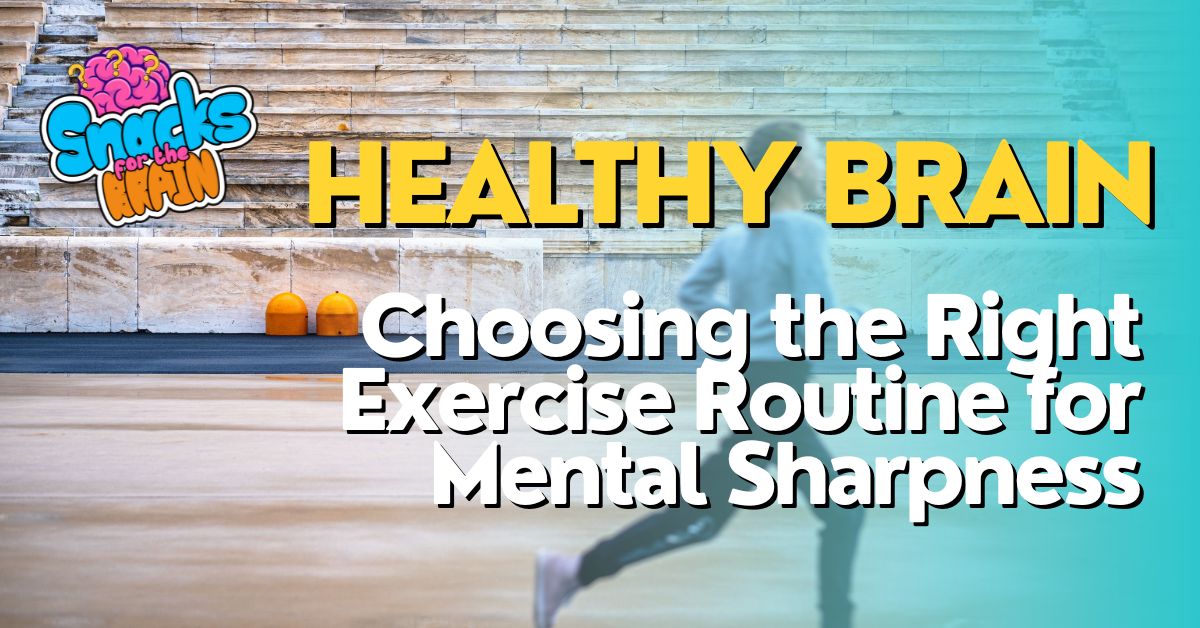Cognitive training apps are mobile applications designed to improve cognitive functions such as memory, attention, problem-solving, and decision-making skills. These apps use scientifically-backed methods and exercises to stimulate and challenge the brain, helping individuals enhance their cognitive abilities. With the increasing prevalence of smartphones and tablets, cognitive training apps have become a popular tool for individuals of all ages to maintain and improve their brain health.
Cognitive training is essential for brain health as it helps to keep the mind sharp and active. Just like physical exercise is crucial for maintaining physical fitness, cognitive exercises are necessary for maintaining mental fitness. As we age, our cognitive abilities naturally decline, but engaging in regular cognitive training can help slow down this decline and even reduce the risk of developing cognitive impairments such as dementia. By challenging the brain with various exercises and tasks, cognitive training apps can help individuals maintain their mental acuity and improve their overall brain health.
Key Takeaways
- Cognitive training apps can improve cognitive abilities such as memory, attention, and problem-solving.
- When choosing a cognitive training app, consider factors such as scientific backing, personalized training programs, user-friendly interface, progress tracking, gamification, social interaction, and cost.
- Scientifically-backed cognitive training methods include working memory training, attention training, and cognitive flexibility training.
- Personalized training programs can adapt to the user’s abilities and goals.
- Gamification and engagement features can increase motivation and enjoyment of the training.
Benefits of Cognitive Training Apps
1. Improved Memory and Focus: One of the primary benefits of cognitive training apps is improved memory and focus. These apps often include exercises specifically designed to enhance memory retention and concentration skills. By regularly engaging in these exercises, individuals can strengthen their ability to remember information and stay focused on tasks.
2. Increased Cognitive Flexibility: Cognitive flexibility refers to the ability to switch between different tasks or mental processes quickly. Cognitive training apps can help improve cognitive flexibility by presenting users with various challenges that require them to think flexibly and adapt to different situations. This can be particularly beneficial for individuals who struggle with rigid thinking patterns or have difficulty adjusting to new circumstances.
3. Reduced Risk of Cognitive Decline and Dementia: Engaging in regular cognitive training has been shown to reduce the risk of cognitive decline and dementia. Studies have found that individuals who regularly participate in cognitive exercises have a lower risk of developing age-related cognitive impairments compared to those who do not engage in such activities. Cognitive training apps provide a convenient and accessible way for individuals to incorporate cognitive exercises into their daily routine and reduce their risk of cognitive decline.
4. Enhanced Problem-Solving Skills: Cognitive training apps often include exercises that require individuals to solve complex problems or puzzles. By regularly engaging in these exercises, individuals can improve their problem-solving skills and develop strategies for approaching and solving challenging tasks. This can be particularly beneficial for individuals in professions that require strong problem-solving abilities, such as engineers, scientists, and business professionals.
5. Better Decision-Making Abilities: Cognitive training apps can also help improve decision-making abilities. These apps often include exercises that require individuals to make quick and accurate decisions based on limited information. By regularly practicing these decision-making tasks, individuals can improve their ability to make sound judgments and decisions in various contexts.
Factors to Consider When Choosing a Cognitive Training App
When choosing a cognitive training app, there are several factors to consider to ensure that you select the most suitable app for your needs. These factors include:
1. App credibility and reputation: It is essential to choose an app from a reputable developer or company with a track record of producing high-quality cognitive training apps. Look for apps that have been reviewed and recommended by experts in the field of cognitive training.
2. User reviews and ratings: User reviews and ratings can provide valuable insights into the effectiveness and user experience of a cognitive training app. Take the time to read reviews from other users to get an idea of how well the app has worked for them.
3. App features and functionalities: Consider the specific features and functionalities offered by the app. Look for apps that offer a wide range of cognitive exercises targeting different cognitive functions. Additionally, consider whether the app offers features such as progress tracking, personalized training programs, and social interaction.
4. Compatibility with devices: Ensure that the app is compatible with your device’s operating system (iOS or Android) and that it runs smoothly on your device. Some apps may have specific hardware requirements, so make sure your device meets these requirements.
5. Cost and subscription options: Consider the cost of the app and any subscription options that may be available. Some apps offer a free version with limited features, while others require a one-time purchase or a monthly/annual subscription. Choose an app that fits within your budget and offers flexible subscription options.
Scientifically-Backed Cognitive Training Methods
Cognitive training is based on the concept of neuroplasticity, which is the brain’s ability to reorganize and form new neural connections throughout life. The science behind cognitive training suggests that engaging in specific cognitive exercises can stimulate the brain and promote the growth of new neural connections, leading to improved cognitive abilities.
There are several different cognitive training methods used in cognitive training apps, including:
1. Memory training: Memory training exercises focus on improving memory retention and recall. These exercises often involve tasks such as memorizing lists of words or numbers, remembering sequences of objects or events, or practicing mnemonic techniques.
2. Attention training: Attention training exercises aim to improve focus and concentration skills. These exercises often involve tasks that require individuals to sustain attention on a specific stimulus or ignore distractions.
3. Problem-solving training: Problem-solving training exercises focus on improving analytical and logical reasoning skills. These exercises often involve tasks such as solving puzzles, riddles, or mathematical problems.
4. Speed processing training: Speed processing training exercises aim to improve processing speed and reaction time. These exercises often involve tasks that require individuals to quickly identify and respond to visual or auditory stimuli.
It is important to choose a cognitive training app that utilizes scientifically-backed methods to ensure that you are engaging in effective and beneficial cognitive exercises.
Personalized Training Programs
Many cognitive training apps offer personalized training programs tailored to individual needs and goals. Personalized training programs take into account factors such as age, cognitive abilities, and specific areas of improvement. These programs provide a more targeted and effective approach to cognitive training.
Personalized training programs work by assessing the individual’s current cognitive abilities through various assessments or tests. Based on the results, the app generates a personalized training plan that includes specific exercises and tasks designed to address the individual’s areas of weakness. As the individual progresses through the training program, the app continuously adapts and adjusts the difficulty level of the exercises to ensure optimal challenge and improvement.
Examples of cognitive training apps with personalized training programs include Lumosity, Elevate, and Peak. These apps offer a range of cognitive exercises and assessments that adapt to the user’s performance and provide personalized feedback and recommendations for improvement.
User-Friendly Interface

A user-friendly interface is crucial for a positive user experience and effective engagement with a cognitive training app. A user-friendly interface should be intuitive, easy to navigate, and visually appealing. It should allow users to access different features and exercises quickly and provide clear instructions on how to complete each task.
Features of a user-friendly interface include:
1. Simple navigation: The app should have a clear and straightforward navigation system that allows users to easily access different features and exercises. The menu structure should be logical and intuitive, making it easy for users to find what they are looking for.
2. Clear instructions: Each exercise or task should come with clear instructions on how to complete it. The instructions should be concise, easy to understand, and provide any necessary information or tips for successful completion.
3. Visual appeal: The app should have an attractive and visually appealing design that engages users and motivates them to continue using the app. The use of colors, graphics, and animations can enhance the overall user experience.
Examples of cognitive training apps with user-friendly interfaces include CogniFit, Fit Brains Trainer, and NeuroNation. These apps have been praised for their intuitive and visually appealing interfaces, making them easy to use for individuals of all ages.
Progress Tracking and Reporting
Progress tracking and reporting features are essential for monitoring and evaluating the effectiveness of cognitive training. These features allow users to track their progress over time, set goals, and receive feedback on their performance. Progress tracking and reporting can help individuals stay motivated and engaged in their cognitive training journey.
Features of progress tracking and reporting include:
1. Performance metrics: The app should provide detailed performance metrics that allow users to track their progress in different cognitive areas. These metrics may include accuracy rates, response times, and overall performance scores.
2. Goal setting: The app should allow users to set specific goals for their cognitive training and track their progress towards these goals. This can help individuals stay motivated and focused on improving their cognitive abilities.
3. Feedback and recommendations: The app should provide personalized feedback and recommendations based on the user’s performance. This feedback can help individuals identify areas for improvement and adjust their training accordingly.
Examples of cognitive training apps with progress tracking and reporting features include BrainHQ, CogniFit, and Lumosity. These apps provide detailed performance metrics, goal-setting features, and personalized feedback to help users track their progress and stay motivated.
Gamification and Engagement Features
Gamification refers to the use of game-like elements in non-game contexts to enhance engagement and motivation. Many cognitive training apps incorporate gamification features to make the training experience more enjoyable and interactive.
Benefits of gamification and engagement features include:
1. Increased motivation: Gamification features such as rewards, badges, and leaderboards can increase motivation by providing a sense of achievement and competition. Users are more likely to engage in regular cognitive training when they feel a sense of progress and accomplishment.
2. Enhanced engagement: Gamification features make cognitive training more engaging by adding elements of fun, challenge, and interactivity. By turning cognitive exercises into games or challenges, users are more likely to stay engaged and motivated to continue training.
3. Improved retention and transfer of skills: Gamification features can help improve the retention and transfer of cognitive skills to real-world tasks. By practicing cognitive skills in a game-like context, users can better apply these skills to everyday situations.
Examples of cognitive training apps with gamification and engagement features include Elevate, Lumosity, and Peak. These apps incorporate elements such as rewards, challenges, and progress tracking to enhance engagement and motivation.
Social Interaction and Support
Social interaction and support features can enhance the cognitive training experience by providing opportunities for collaboration, competition, and support from others. Many cognitive training apps offer social features that allow users to connect with friends, compare their performance, and participate in challenges or competitions.
Importance of social interaction and support:
1. Motivation: Social interaction can increase motivation by providing a sense of accountability and friendly competition. Users are more likely to engage in regular cognitive training when they have friends or peers to challenge and support them.
2. Collaboration: Social interaction allows users to collaborate with others on cognitive exercises or tasks. This can provide different perspectives and strategies for solving problems, leading to improved learning and performance.
3. Support: Social interaction provides a platform for individuals to seek support and advice from others who may be facing similar challenges or goals. This can create a sense of community and encouragement, making the cognitive training journey more enjoyable and rewarding.
Examples of cognitive training apps with social interaction and support features include Lumosity, Elevate, and Fit Brains Trainer. These apps allow users to connect with friends, participate in challenges or competitions, and share their progress on social media platforms.
Cost and Subscription Options
When choosing a cognitive training app, it is important to consider the cost and subscription options available. Different apps may have different pricing models, including one-time purchases, monthly subscriptions, or annual subscriptions.
Overview of different cost and subscription options:
1. Free version: Some cognitive training apps offer a free version with limited features or access to a limited number of exercises. This can be a good option for individuals who want to try out the app before committing to a paid subscription.
2. One-time purchase: Some apps require a one-time purchase to unlock all features and exercises. This can be a more cost-effective option for individuals who plan to use the app long-term.
3. Monthly/annual subscription: Many cognitive training apps offer monthly or annual subscription options that provide unlimited access to all features and exercises. Subscription options can vary in price, so it is important to choose an app that fits within your budget.
It is important to choose an app with cost and subscription options that are affordable and flexible for your needs. Consider whether the app offers a free trial period or a money-back guarantee to ensure that you are satisfied with your purchase.
Cognitive training apps offer numerous benefits for brain health, including improved memory and focus, increased cognitive flexibility, reduced risk of cognitive decline and dementia, enhanced problem-solving skills, and better decision-making abilities. When choosing a cognitive training app, it is important to consider factors such as app credibility, user reviews, features and functionalities, compatibility with devices, and cost and subscription options.
Scientifically-backed cognitive training methods, personalized training programs, user-friendly interfaces, progress tracking and reporting features, gamification and engagement features, and social interaction and support are all important considerations when selecting a cognitive training app. By choosing the right app for your individual needs, you can engage in regular cognitive training to improve your brain health and overall cognitive abilities. So why not give cognitive training apps a try and start reaping the benefits for your brain health today?
If you’re interested in cognitive training apps, you may also want to check out Intelligence Snacks & Hacks. They offer a range of techniques and strategies to improve memory and enhance cognitive abilities. In their article «Techniques to Improve Your Memory,» they provide valuable insights and practical tips on how to boost your memory power. Whether you’re a student looking to ace exams or an adult seeking to sharpen your cognitive skills, this article is a must-read. Visit Intelligence Snacks & Hacks for more information.
FAQs
What is cognitive training?
Cognitive training is a type of mental exercise that aims to improve cognitive abilities such as memory, attention, problem-solving, and decision-making.
What are cognitive training apps?
Cognitive training apps are mobile applications that offer various exercises and activities designed to improve cognitive abilities.
What features should I look for in a cognitive training app?
When choosing a cognitive training app, look for features such as personalized training programs, scientifically validated exercises, progress tracking, and user-friendly interface.
Are cognitive training apps effective?
Studies have shown that cognitive training apps can be effective in improving cognitive abilities, but the extent of improvement may vary depending on the individual and the app used.
Can cognitive training apps prevent or treat cognitive decline?
While cognitive training apps may help improve cognitive abilities, they are not a substitute for medical treatment and cannot prevent or treat cognitive decline or disorders on their own.
Are cognitive training apps suitable for everyone?
Cognitive training apps can be used by people of all ages, but it is important to choose an app that is appropriate for your cognitive abilities and goals. It is also recommended to consult with a healthcare professional before starting any cognitive training program.






